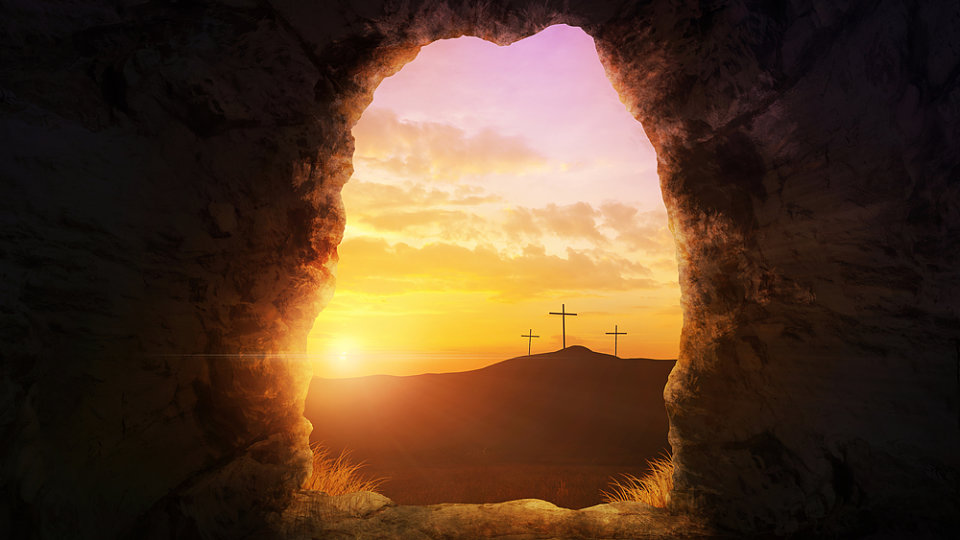Christ Is Risen!

Happy Easter! During this Lenten season, we have been reading through the Gospel of John together. I hope this Challenge has been a blessing to you. Each day this week, I’ve been posting excerpts from my latest book, John: The Gospel of Light and Life. Today, we celebrate the resurrection of Christ. Different religions and philosophies offer very different answers to the question of death. Christianity’s answer to death is Easter (or perhaps better said, God’s answer to death is Easter). The resurrection of Jesus is God’s emphatic way of saying that death is not the end—that, in the words of Paul, “Death has been swallowed up in victory” (1 Corinthians 15:54 NRSV). Easter transforms our sorrow into joy and hope, our fear into peace and courage. This is what happened to Mary and the disciples on that first Easter. Jesus had been foreshadowing his resurrection throughout the Gospel of John. In John 5:28-29 he said, “Don’t be surprised by this, because the time is coming when all who are in their graves will hear his voice. Those who did good things will come out into the resurrection of life, and those who did wicked things into the resurrection of judgment.” In 11:25-26 he promised, “I am the resurrection and the life. Whoever believes in me will live, even though they die. Everyone who lives and believes in me will never die.” In 14:1-3, just before he was arrested, he said to his disciples, “Don’t be troubled. Trust in God. Trust also in me. My Father’s house has room to spare. If that weren’t the case, would I have told you that I’m going to prepare a place for you? When I go to prepare a place for you, I will return and take you to be with me so that where I am you will be too.” But as moving and hope-filled as Jesus’ earlier statements had been, it was in the Resurrection itself that his words were powerfully demonstrated to be true. Jesus’ resurrection demonstrated his power over death. The Impact of Easter In John’s Gospel, Jesus or John mentions life or eternal life forty-seven times. That’s more than Matthew, Mark, and Luke combined. So clearly this is a big idea for John. As I noted earlier, when Jesus spoke about eternal life, he always described it not as a future state after we die, but as something we begin to experience in the present. According to Jesus, eternal life starts now. I think that means that if we know that Christ is the I Am, if we accept him as our King, if we recognize the significance of his death, and if we trust in his resurrection, we see and experience God’s intention for human life now. This Word from God, this message embodied in Jesus’ life, teachings, death, and resurrection, once accepted, changes everything. It is life-giving. The Resurrection and its promise of life after death show that evil, sickness, and even death will not have the final word. Christ’s promise in John 14:19—“Because I live, you will live too”—fundamentally changes how I face the deaths of people I love, how much risk I’m willing to take in my life, how I approach growing old, and how I look at my own death. I’m okay with death, at least my own. The older we get, and the more of our loved ones are on the other side, the more we’re meant to look forward to that great reunion. Of course we feel sorrow, we cry, and we grieve. But we do so as those who have hope. Today’s post is an excerpt from John: The Gospel of Light and Life. To find out more about this best-selling book and small group study, click here.